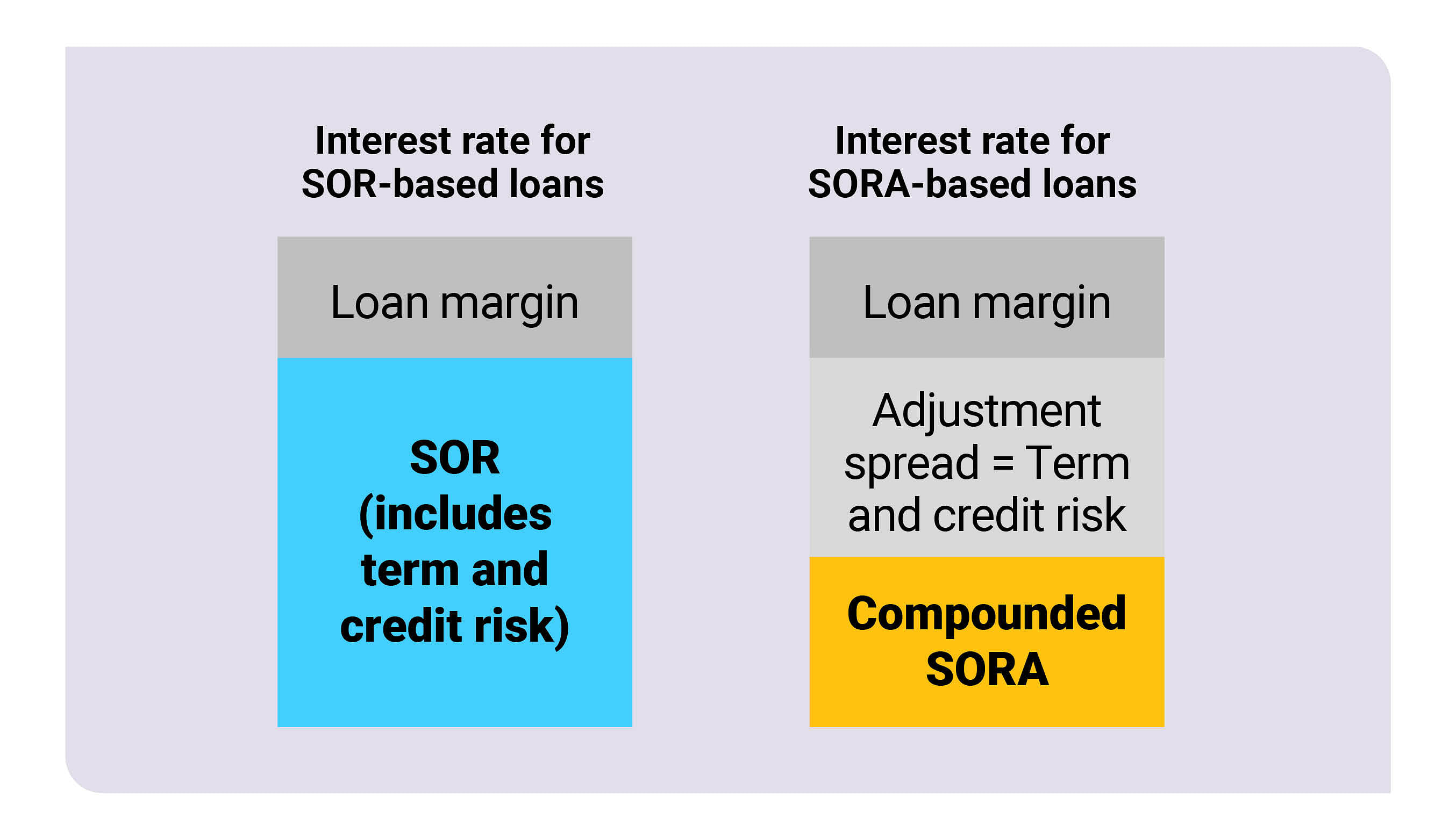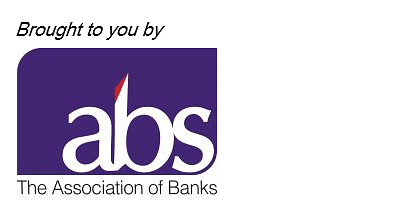BRANDED CONTENT
Singapore’s transition to SORA: Key questions answered
Administered by the Monetary Authority of Singapore, interest rate benchmark SORA now indexes derivatives worth over S$200 billion and loans amounting to S$10 billion

The switch to SORA is in line with global interest rate benchmark reforms. Key financial markets are shifting towards interest rate benchmarks that are determined by transaction data for greater transparency and robustness. PHOTO: GETTY IMAGES
Financial markets around the world are shifting to new interest rate benchmarks that are more transparent and robust. These benchmarks are used in a variety of financial instruments and products worth trillions of dollars, ranging from mortgages and commercial loans to bonds and interest rate derivatives.
Over the past two years, banks in Singapore have been making preparations to ensure a smooth transition to the Singapore Overnight Rate Average (SORA) for customers. Mrs Ong-Ang Ai Boon, director of The Association of Banks in Singapore (ABS), answers key questions about the shift from the legacy rates, Singapore Dollar Swap Offer Rate (SOR) and Singapore Interbank Offered Rate (SIBOR), to SORA and the measures being implemented to safeguard the interests of lenders and borrowers.

Q: SOR and SIBOR have been Singapore's main interest rate benchmarks for more than 20 years. They have been used to determine the pricing of loans, bonds and derivatives, underpinning trillions of dollars of contracts across the whole of Singapore's financial sector. Why is there a need to replace these benchmarks with SORA?
The switch to SORA is in line with global interest rate benchmark reforms. Key financial markets are shifting towards interest rate benchmarks that are determined by transaction data for greater transparency and robustness.
In Singapore, there are two concurrent developments that are taking place:
SOR will be discontinued after June 30, 2023. This is because the US dollar (USD) London Interbank Offered Rate (LIBOR), which underpins the computation of SOR, will no longer be available as international regulators have decided that it will be discontinued after the same date.
SIBOR will also be phased out alongside other similar Interbank Offered Rates such as the Sterling (GBP) LIBOR and Tokyo Interbank Offered Rate (TIBOR). The six-month SIBOR will be discontinued after March 31, 2022, while the more widely used one-month and three-month SIBOR will be discontinued after December 31, 2024.
SORA will be the key interest rate benchmark for Singapore dollar financial instruments. It is the average rate of transactions in the overnight interbank cash market where banks borrow and lend Singapore dollars to one another. The Monetary Authority of Singapore (MAS) compiles and publishes SORA and Compounded SORA averages daily on its website1 for transparency.
What are SOR, SIBOR and SORA, and how are they different?
Q: Besides mortgages, which other financial products reference SORA?
Besides the thousands of property loans that are already pegged to SORA and the thousands more that will be converted from SOR and SIBOR over the next three years, SORA will also become the interest rate benchmark in the wholesale market for derivatives, bonds and corporate loans.
The use of SORA in these instruments has increased rapidly this year, with well over S$200 billion worth of SORA derivatives and S$10 billion worth of SORA-based loans outstanding currently.
Q: How have the banking industry and MAS been facilitating a smooth transition to SORA?
To support a smooth transition away from SOR and SIBOR, the Steering Committee for SOR & SIBOR Transition to SORA (SC-STS)2 was established by MAS in August 2019. The SC-STS is an industry-led committee comprising representatives from key banks in Singapore, relevant industry associations, and MAS.
In the first two years, the SC-STS worked with market participants such as banks, corporate treasurers and legal firms towards establishing market conventions and infrastructure for the new SORA markets in corporate loans, bonds and derivatives.
The SC-STS subsequently developed guidance for the transition of legacy SOR retail loans to a SORA reference, which set out the different options for transition, including the introduction of the SORA Conversion Package which applies an adjustment spread, also known as the Adjustment Spread (Retail), to account for the difference between SOR and Compounded SORA.
Q: What is the SORA Conversion Package, and how will it help retail customers with outstanding SOR-based loans?
For retail customers looking to switch out of their existing SOR-based loans, the SC-STS has recommended that banks offer the SORA Conversion Package to retail customers without charging an additional fee or imposing a lock-in period.
The SORA Conversion Package has been designed to do three things:
Convert a customer's SOR-based loan to reference the three-month Compounded SORA, the most commonly offered tenor setting for SORA-based loan packages;
Retain the customer's original loan margin; and
Apply an Adjustment Spread (Retail)
The three-month Compounded SORA is computed by taking the compounded average of daily SORA readings over the past three months. The averaging effect reduces volatility and provides for relatively more stable rates.
The customer's loan margin would be the same margin that customers were previously paying on top of SOR. For example, if you were paying three-month SOR plus a loan margin of one per cent on your existing loan, the one per cent loan margin would be ported over to your SORA Conversion Package.
Finally, the SORA Conversion Package includes an Adjustment Spread (Retail), to account for the fundamental difference between SOR and Compounded SORA.

MAS will not require banks to re-compute the total debt servicing ratio (TDSR) for affected customers making the switch within the same bank. This is a one-time exception to facilitate the transition from SOR to SORA.
Customers who decide to switch to alternative loan packages with other banks should check if they will be exempted from TDSR rules. For example, borrowers who are owner-occupiers are exempted from TDSR rules when refinancing their property loans with other banks.
Aside from the SORA Conversion Package, customers may also choose to switch to other loan packages offered by their bank. They may, however, be subject to the prevailing terms and conditions, such as a lock-in period.
Q: Why is there a need for an adjustment spread and how is this calculated?
SOR incorporates a term and credit risk premium through its use of USD LIBOR, which is an indicator of the interest rates banks expect to pay in order to borrow US dollars for periods ranging from overnight to six months. SORA, on the other hand, is nearly free of term and credit risk premium as it is based on overnight transactions.
Data from the past five years showed that the three-month Compounded SORA, which is now used in mortgage loans, has been on average about 30 basis points, or 0.3 percentage points, lower than the three-month SOR. Thus, there is a need to apply an adjustment spread to account for term and credit risks.
To ensure consistent application across the industry, the SC-STS will compute3 and publish a set of adjustment spreads on the ABS website4 on the first business day of each month. These adjustment spreads will be applied to all SOR-based loans being converted under the SORA Conversion Package within that month.
Q: What should customers do if they have existing SOR- or SIBOR-based loans?
If you have a property or commercial loan pegged to SOR or SIBOR, you will need to switch to a different loan package before these reference rates are discontinued.
For SOR-based loan holders, please contact your bank to ask about a switch to an alternative loan as soon as possible.
If you have a loan that references SIBOR, your bank will contact you in due course to help you switch to a new package.
Click here to learn more about SORA and get the latest updates on Singapore's interest rate benchmarks.
Timeline of events
2019: The ABS and the Singapore Foreign Exchange Market Committee recommended SORA as the most suitable benchmark to replace SOR. MAS established the SC-STS.
2020: MAS announced several initiatives to support the adoption of SORA, and banks started offering housing loans pegged to SORA.
Apr 30, 2021: Banks ceased usage of SOR in new loans and securities.
Sept 30, 2021: Banks ceased usage of SIBOR in new contracts and SOR in new derivatives (with exceptions).
Oct 31, 2022: Banks to convert all SOR-based property loans to alternative packages.
Dec 31, 2022: All other SOR contracts to be converted to SORA, or to include robust contractual fallbacks.
June 30, 2023: Discontinuation of SOR.
Dec 31, 2024: Discontinuation of SIBOR.
Source: ABS
This is the last of a four-part series on the banking industry's transition to SORA, the new interest rate benchmark in Singapore.



